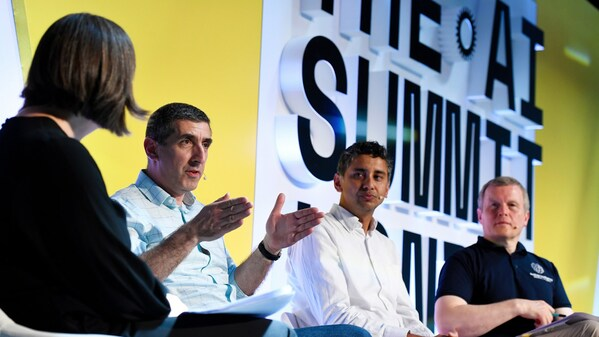Amazon Upgrades Alexa's AI for Fluid Conversations
Amazon wants Alexa to be more human-like in its conversation with users through new AI models

At a Glance
- Amazon has upgraded Alexa's natural language processing and speech capabilities through new large language models.
- New speech techniques enable the virtual assistant to have more human-like conversational abilities.
Amazon announced major upgrades to Alexa's natural language and speech capabilities to enable more human-like conversations.
Teased back in May, the new underlying model is designed to make Alexa engage in more natural conversations.
The virtual assistant has new capabilities too – it can make API calls, has improved personalization and knowledge grounding to make its factual assertions more reliable.
Amazon has also overhauled Alexa’s automatic speech recognition (ASR) system – improving its underlying algorithms and hardware as well as moving it to a larger text-to-speech model trained on thousands of hours of multilingual audio data. Alexa’s new ASR system can even recover if its reply is cut off too soon thanks to a new tool that helps repair truncated speech.
Alexa has been given a new speech-to-speech model as well, designed to power humanlike conversational attributes including laughter. The new underlying model will be able to understand user notations, like being able to respond with excitement if a user is excited.
The new Alexa was shown off by Amazon senior vice president Dave Limp at an event at Amazon’s new HQ2 office in Arlington, Virginia. Limp said interactions with Alexa would now be “just like talking to another human being.”
Users can now wake Alexa just by looking at the screen of a camera-enabled Alexa device – removing the device’s wake word, something smart speaker rival Apple is doing with Siri. New on-device visual processing combined with acoustic models can determine whether a customer is speaking to Alexa or someone else.
Alexa’s new capabilities will begin rolling out over the next few months.
Amazon's Alexa upgrades are part of CEO Andy Jassy’s desire to make it “the world's best personal assistant.”
The company has created a "central team" to work on ambitious AI projects, with an AI Business source revealing last month that the team would be tasked with developing large language models. It is led by Rohit Prasad, head scientist for Alexa who reports directly to CEO Jassy.
Read more about:
ChatGPT / Generative AIAbout the Author(s)
You May Also Like


.jpg?width=700&auto=webp&quality=80&disable=upscale)
.jpg?width=700&auto=webp&quality=80&disable=upscale)

.jpg?width=300&auto=webp&quality=80&disable=upscale)
.jpg?width=300&auto=webp&quality=80&disable=upscale)
.jpg?width=300&auto=webp&quality=80&disable=upscale)
.jpg?width=300&auto=webp&quality=80&disable=upscale)
.jpg?width=300&auto=webp&quality=80&disable=upscale)